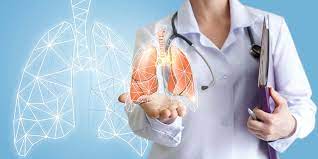The field of treatment is vast, and there are various areas of expertise that physicians can are experts in. A great niche is pulmonology, which focuses on the diagnosis and treatment of lung-related ailments. But what exactly does a pulmonologist do? In this article, we will be studying the part of a pulmonologist in greater detail, including their everyday duties and the sorts of conditions they take care of.
What is a Pulmonologist?
A pulmonologist is a doctor who specializes in treating problems associated with the respiratory process. This can involve conditions such as asthma attack, pneumonia, tuberculosis, long-term obstructive pulmonary sickness (COPD), and carcinoma of the lung. Pulmonologists can also be taught to take care of apnea along with other sleep-associated inhaling and exhaling disorders.
Everyday Responsibilities
The daily responsibilities of a pulmonologist can vary depending on their niche and function setting. In private practice, for example, a pulmonologist may see patients for meetings, carry out analytical exams for example inhaling exams and bronchoscopies, and come up with treatment programs. In a medical center setting, a pulmonologist may be accountable for dealing with sufferers in the intense treatment model (ICU) who are on mechanized air flow or have extreme breathing stress.
Varieties of Situations Taken care of
As outlined above, pulmonologists deal with a wide variety of situations related to the respiratory system system. Here are the most common situations handled by pulmonologists:
Asthma attack: A chronic issue which causes irritation and narrowing from the air passages, resulting in difficulty breathing.
Persistent Bronchitis: A type of COPD seen as a swelling of the bronchial pipes and extra mucus manufacturing, creating hacking and coughing and difficulty respiration.
Emphysema: Another kind of COPD that requires injury to the atmosphere sacs in the lungs, creating difficulty breathing and issues respiration.
Cancer Of The Lung: A dangerous tumor that starts off within the lungs and will distribute for some other parts of the body.
Pneumonia: Contamination from the respiratory system which can be brought on by bacteria, malware, or fungus.
Training and Education
To be a pulmonologist, one must initially complete healthcare university and a residency in internal treatments. Following completing residency, they need to then total a fellowship in pulmonary treatment, which typically will last 3 years. In this fellowship, pulmonologists receive specialised lessons in the prognosis and treatments for lung-connected disorders.
The best time to See a Pulmonologist
If you are going through any signs and symptoms relevant to the respiration system, like hacking and coughing, wheezing, difficulty breathing, or chest pain, it may be time for you to see a pulmonologist. Depending on your signs and health background, your primary proper care doctor may point one to a pulmonologist for even more examination and remedy.
quick: In short, a pulmonologist performs a essential role in the prognosis and treatments for lung-connected problems. From bronchial asthma and pneumonia to carcinoma of the lung and COPD, these experts are trained to supply extensive proper care for their patients. So when you have any symptoms related to your respiratory system system, don’t be reluctant to timetable an appointment with a pulmonologist these days.



